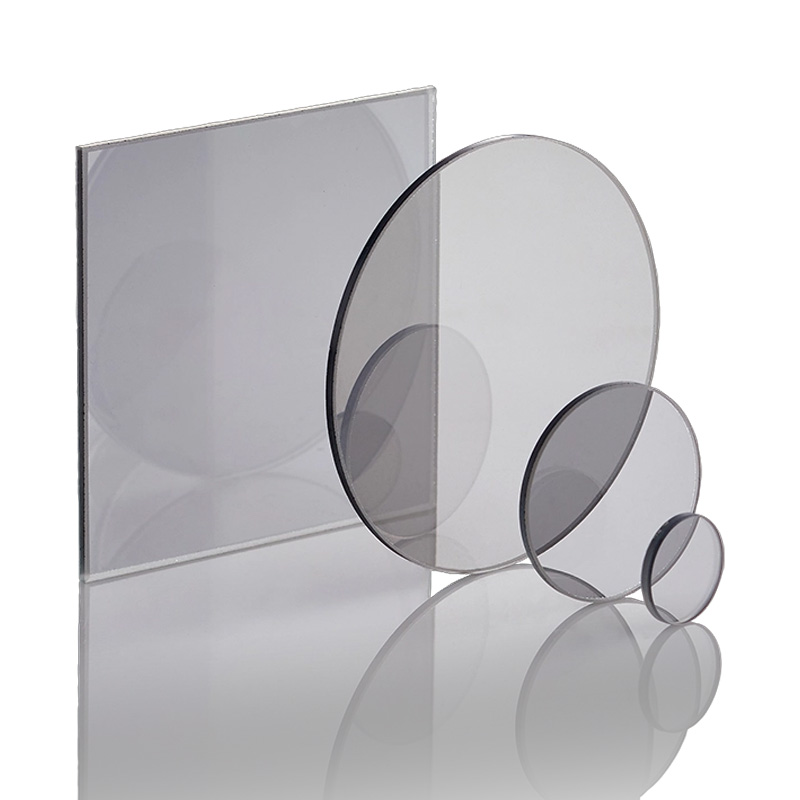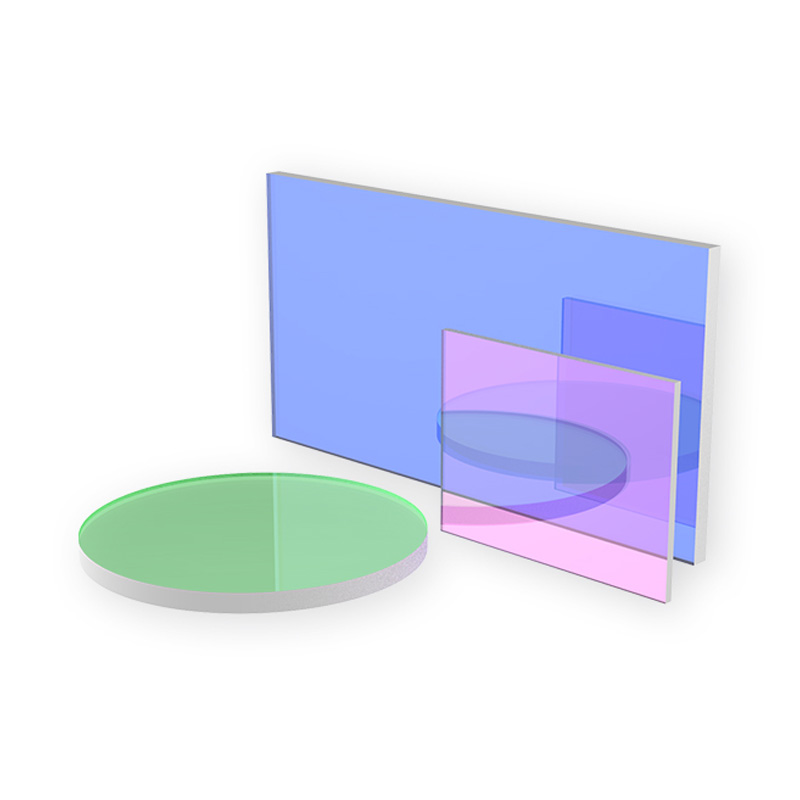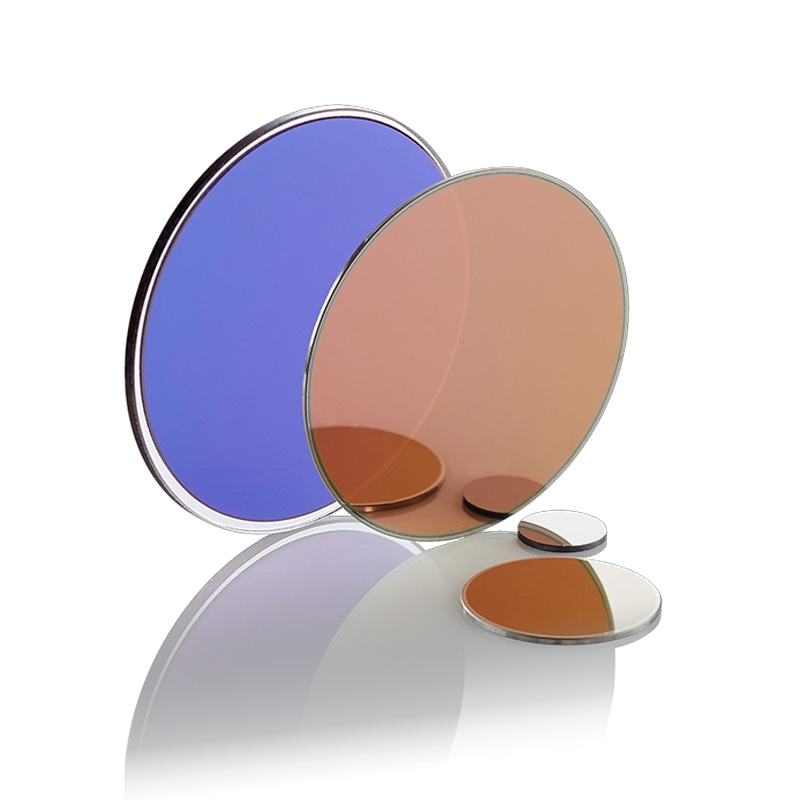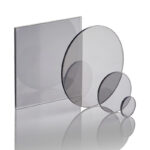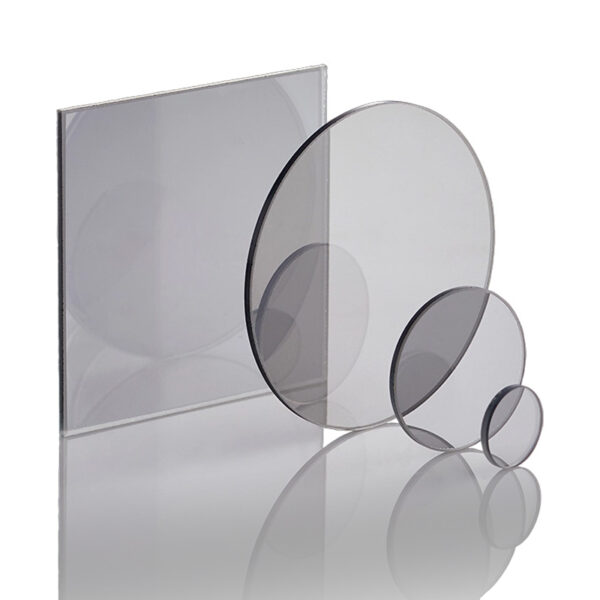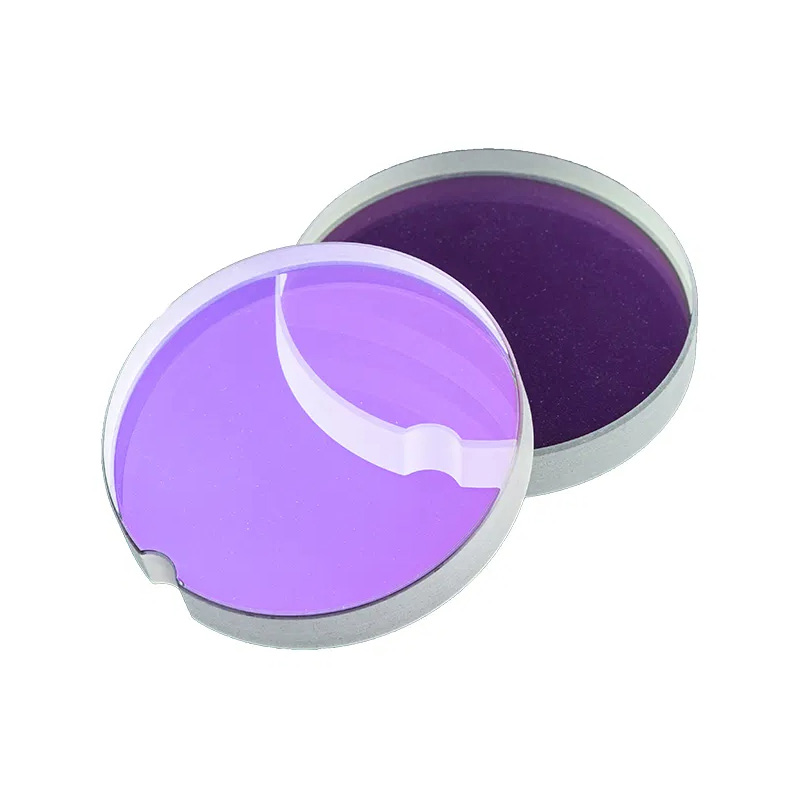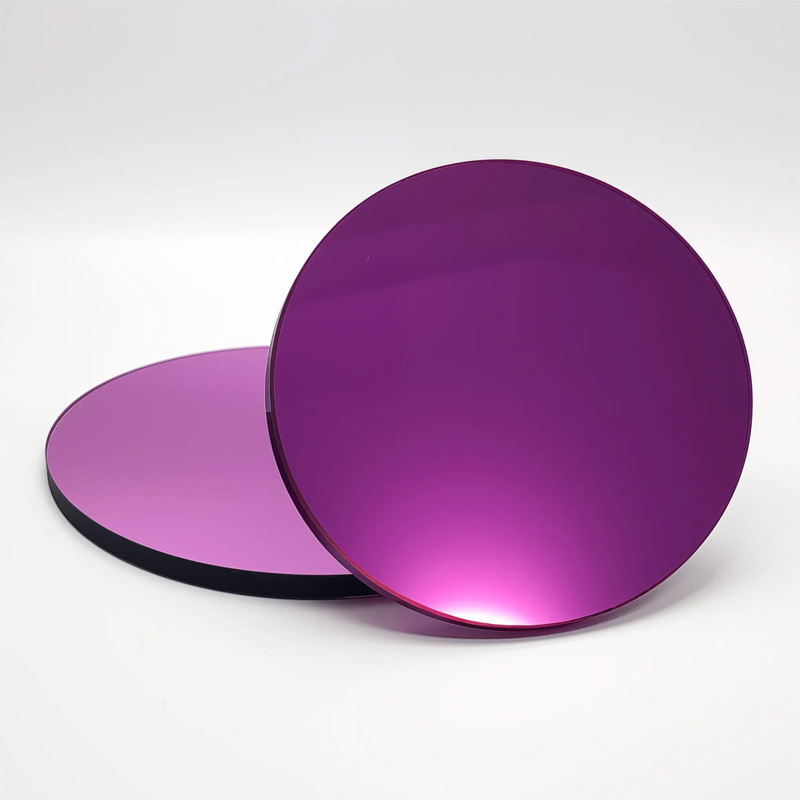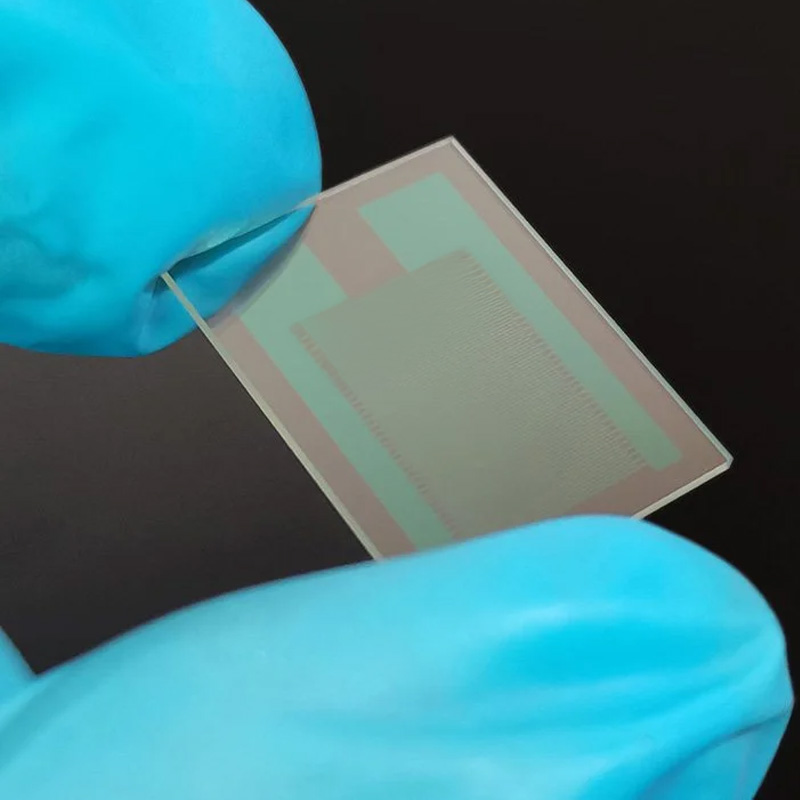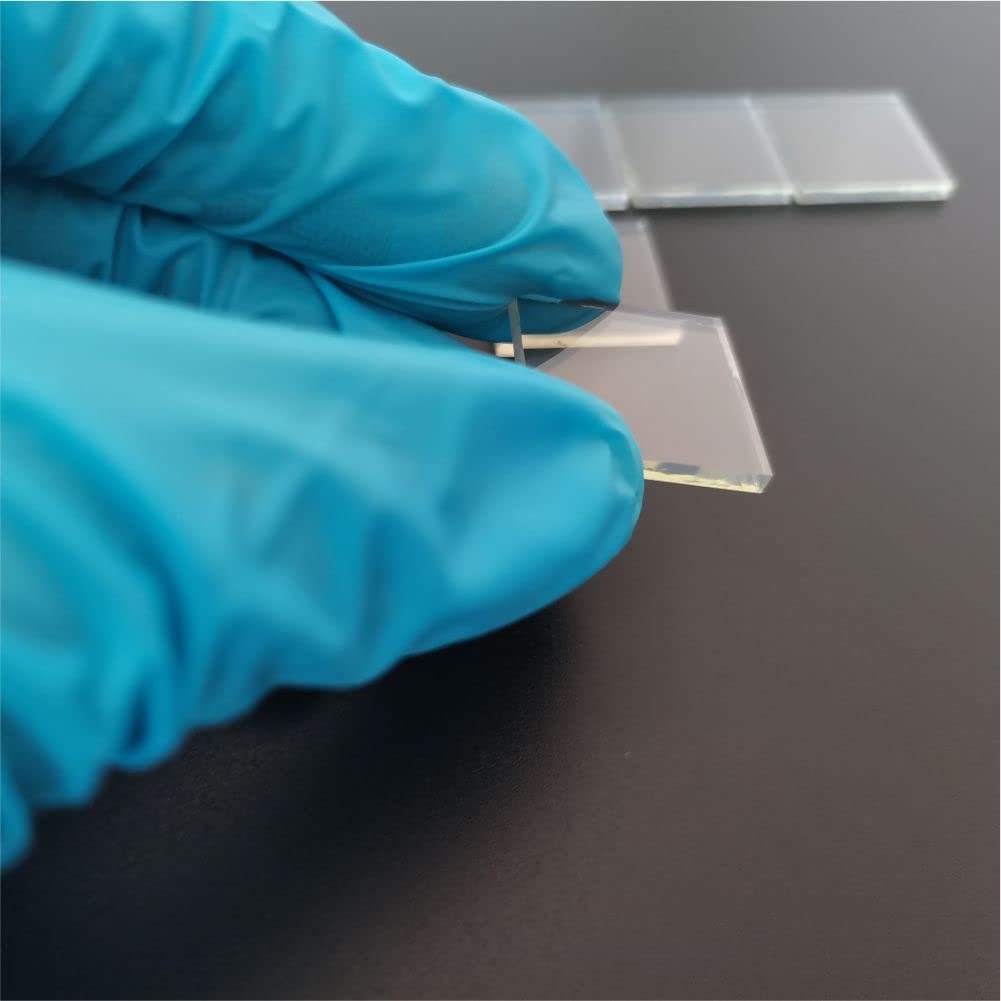产品: Neutral Density (ND) Filters
Featured products
Neutral Density (ND) Filters
Neutral density filters are precision optical attenuators that reduce light intensity uniformly across the visible spectrum without altering color balance or spectral distribution. Unlike wavelength-selective filters, ND filters provide spectrally neutral attenuation, making them essential for controlling light levels in imaging systems, laser power management, and photometric applications where color fidelity must be preserved.
Key Features
Precise Optical Density Control
Available in standard densities (OD 0.3, 0.6, 1.0, 2.0, 3.0, 4.0) and custom values, providing transmission levels from 50% to 0.0001% with ±5% tolerance for accurate light level management.
Excellent Spectral Neutrality
Flat transmission across specified wavelength range (typically ±5% variation from 400-700 nm visible, or custom UV-NIR ranges) ensures no color shift or spectral distortion in imaging and measurement applications.
High Spatial Uniformity
Transmission uniformity across filter aperture typically ±2% for absorptive types and ±5% for reflective types, ensuring even illumination and consistent attenuation across the field of view.
Multiple Technology Options
Absorptive (metallic thin film), reflective (dielectric multilayer), or hybrid designs selected based on wavelength range, power handling, and application requirements for optimal performance.
Durable Hard Coating Options
Protected metallic coatings or hard dielectric layers resist scratching, humidity, and environmental degradation for long-term stability in demanding conditions.
Flexible Format Options
Available as unmounted filters, mounted assemblies, variable ND filters, filter wheels, or custom OEM configurations for seamless system integration.
Typical Specifications
| Parameter | Specification Range | Description |
|---|---|---|
| Transmission | 0.0001%–80% | Corresponds to OD value (T% = 10^(-OD) × 100%) |
| Optical Density Tolerance | ±0.05 OD to ±0.3 OD | Tighter tolerances available for critical applications |
| Spectral Range | 200–2500 nm | UV, visible, NIR versions available |
| Spectral Neutrality | ±5% deviation typical | Across specified wavelength range |
| Spatial Uniformity | ±2% (absorptive), ±5% (reflective) | Transmission variation across aperture |
| Substrate Material | BK7, Fused Silica, B270 | Selected by wavelength and thermal requirements |
| Diameter/Size | 12.5–100 mm (custom available) | Round, square, or rectangular formats |
| Thickness | 1–3 mm typical | Standard optical thicknesses |
| Clear Aperture | >85% of diameter | Usable optical area |
| Parallelism | <3 arcmin | Minimizes beam deviation |
| Operating Temperature | -20°C to +85°C | Varies by coating type |
| Laser Damage Threshold | 0.5–5 J/cm² | Depends on OD, wavelength, and coating type |
Product Types
Absorptive Neutral Density Filters
Utilize thin metallic films (typically Inconel, chromium, or stainless steel alloys) deposited on glass substrates. The metal layer absorbs light energy, converting it to heat. These filters offer excellent spectral neutrality across broad wavelength ranges (UV-VIS-NIR) and good spatial uniformity. Ideal for moderate power applications, photography, scientific imaging, and general laboratory use. Available in OD 0.1 to OD 4.0 with best performance in visible spectrum. Note: Not recommended for high-power laser applications due to heat generation and potential thermal damage.
Reflective Neutral Density Filters
Use multilayer dielectric coatings to achieve neutral attenuation through partial reflection rather than absorption. These filters reflect unwanted light while transmitting the desired amount, generating minimal heat. Superior for high-power laser applications, pulsed laser systems, and situations where thermal management is critical. Offer higher laser damage thresholds (>5 J/cm²) compared to absorptive types. Trade-off: may exhibit slight angle-dependence and polarization sensitivity. Available in OD 0.3 to OD 3.0 typically.
Hybrid Neutral Density Filters
Combine absorptive and reflective technologies to optimize performance across extended wavelength ranges or achieve specific optical density values. For example, a reflective coating for primary attenuation with an absorptive layer to suppress back-reflections. Useful for applications requiring both high power handling and minimal ghost images, such as high-end camera systems and precision photometry.
Variable Neutral Density Filters
Consist of two rotating polarizers or graduated ND coatings that enable continuous optical density adjustment from OD 0.04 to OD 2.0 or higher. Users can dial in precise attenuation levels without changing filters. Ideal for photography, microscopy, and any application requiring frequent light level adjustments. Note: polarization effects must be considered, and spectral neutrality may vary across the range.
Step Neutral Density Filters
Feature multiple discrete OD values on a single substrate (e.g., OD 0.3, 0.6, 1.0, 2.0 in quadrants or wedge patterns). Enable quick comparison testing or provide multiple attenuation options in compact space. Commonly used in optical testing, photometric calibration, and quality control applications. Can be integrated into filter wheels or slide mechanisms for automated switching.
UV and NIR Neutral Density Filters
Specially designed for ultraviolet (200-400 nm) or near-infrared (700-2500 nm) applications where standard visible ND filters may not maintain neutrality. UV-ND filters use fused silica substrates and specialized coatings transparent in UV range. NIR-ND filters extend neutrality beyond 1000 nm for applications in fiber optic testing, IR spectroscopy, and thermal imaging calibration.
Leave Your Message



